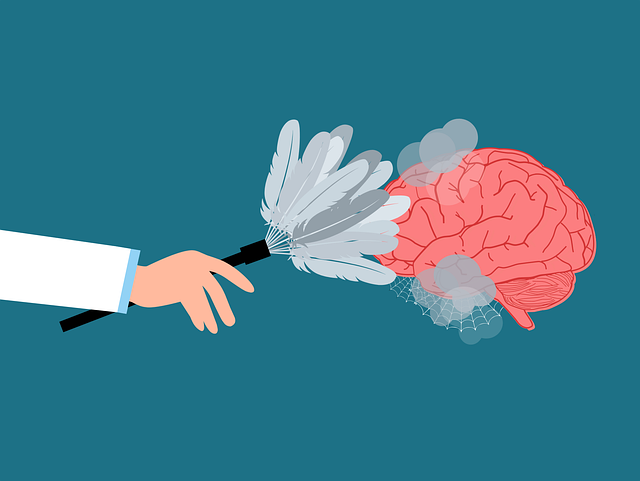Risk assessment is a cornerstone of domestic violence therapy at Littleton Domestic Violence Therapy, where professionals meticulously evaluate client histories and behaviors to identify potential hazards and mitigate them through resilience-building strategies. They empower clients with self-care routines and early intervention through public awareness campaigns, reducing community risk burdens. Therapists navigate sensitive cases by employing specialized techniques, fostering empowering relationships, and maintaining strong boundaries for client safety. Littleton Domestic Violence Therapy prioritizes therapist well-being and professional development to ensure effective, strategic risk management and high-quality care for their clients and communities.
“In the field of mental health, risk assessment is a critical component of safe practice, especially when addressing complex issues like domestic violence. This article explores the essential process of risk assessment for professionals in the mental health sector, with a specific focus on the unique challenges faced by those practicing Littleton Domestic Violence Therapy.
We’ll delve into strategies that enable therapists to navigate these risks effectively, ensuring client safety and well-being while providing transformative support.”
- Understanding Risk Assessment in Mental Health Practice
- Unique Challenges and Risks in Domestic Violence Therapy
- Strategies for Safe and Effective Risk Management
Understanding Risk Assessment in Mental Health Practice

Risk assessment is a cornerstone of mental health practice, crucial for identifying potential hazards and implementing preventative measures. For professionals like those at Littleton Domestic Violence Therapy, understanding risk factors is essential to ensure client safety and foster effective therapy. This process involves meticulously evaluating various aspects of a client’s life, including their history, current circumstances, and behaviors, to anticipate and mitigate risks of harm to themselves or others.
By incorporating resilience building strategies and encouraging the development of a robust self-care routine for better mental health, therapists can empower individuals to navigate challenges more effectively. Moreover, public awareness campaigns development can play a significant role in promoting early intervention and reducing the overall risk burden within communities.
Unique Challenges and Risks in Domestic Violence Therapy

Mental health professionals who specialize in domestic violence therapy face unique challenges and risks due to the sensitive nature of their work. In Littleton Domestic Violence Therapy, for instance, therapists often encounter highly traumatized individuals grappling with complex emotional issues, including fear, shame, and guilt. These clients may have experienced physical abuse, emotional manipulation, or both, which can significantly impact their ability to trust and open up during therapy sessions. The potential for re-traumatization is a significant risk, requiring therapists to employ specialized techniques and maintain strong boundaries to ensure client safety.
Additionally, the therapist-client relationship itself becomes a critical factor in effective treatment. Domestic violence survivors may have experienced manipulation and control in their past relationships, making it crucial for therapists to foster an environment of empowerment, respect, and confidentiality. They must navigate delicate dynamics, ensuring clients feel heard, validated, and supported while addressing the root causes of abuse. Community Outreach Program Implementation and Public Awareness Campaigns Development can further mitigate these risks by educating the public about domestic violence, reducing stigma, and encouraging survivors to seek help without fear of judgment or recrimination. Stress Management Workshops Organization within the community can also empower individuals to recognize and respond appropriately in situations involving domestic violence.
Strategies for Safe and Effective Risk Management

Mental health professionals are always navigating complex situations, requiring a strategic approach to risk management. Implementing robust safety protocols and fostering a culture of resilience is paramount. This involves integrating self-care routine development for better mental health into their own practices, ensuring they maintain their inner strength and ability to manage stress effectively. At Littleton Domestic Violence Therapy, we recognize that professionals must be equipped with the knowledge and tools to address risks proactively.
Mentoring programs and ongoing mental health education can play a significant role in this process. Well-designed education programs can equip therapists with specialized skills for handling high-risk cases while promoting self-awareness and emotional regulation. By prioritizing both professional development and personal well-being, mental health professionals can deliver safe and effective therapy, ultimately benefiting their clients and the communities they serve.
Mental health professionals, especially those specializing in domestic violence therapy like those at Littleton Domestic Violence Therapy, face unique risks due to the sensitive nature of their work. Understanding risk assessment is crucial for ensuring safe and effective practice. By recognizing potential hazards, implementing strategic risk management techniques, and staying updated with best practices, professionals can create a secure environment for both themselves and their clients, fostering positive outcomes in treatment.














